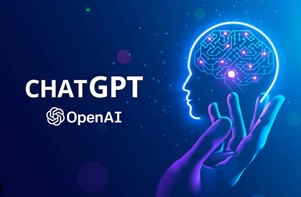EU police force Europol has warned about the potential misuse of artificial intelligence-powered chatbot ChatGPT in phishing attempts, disinformation and cybercrime, adding to the chorus of concerns ranging from legal to ethical issues.
Since its release last year, Microsoft-backed OpenAI’s ChatGPT has set off a tech craze, prompting rivals to launch similar products and companies to integrate it or similar technologies into their apps and products.
Europol says that as the capabilities of LLMs (large language models) such as ChatGPT are actively being improved, the potential exploitation of these types of AI systems by criminals provide a grim outlook, as it presented its first tech report starting with the chatbot.
It singled out the harmful use of ChatGPT in three areas of crime. The following three crime areas are amongst the many areas of concern identified by Europol’s experts:
Fraud and social engineering: ChatGPT’s ability to draft highly realistic text makes it a useful tool for phishing purposes. The ability of LLMs to reproduce language patterns can be used to impersonate the style of speech of specific individuals or groups. This capability can be abused at scale to mislead potential victims into placing their trust in the hands of criminal actors.
Disinformation: ChatGPT excels at producing authentic sounding text at speed and scale. This makes the model ideal for propaganda and disinformation purposes, as it allows users to generate and spread messages reflecting a specific narrative with relatively little effort.
Cybercrime: In addition to generating human-like language, ChatGPT is capable of producing code in a number of different programming languages. For a potential criminal with little technical knowledge, this is an invaluable resource to produce malicious code.
As technology progresses, and new models become available, it will become increasingly important for law enforcement to stay at the forefront of these developments to anticipate and prevent abuse.
“ChatGPT’s ability to draft highly realistic text makes it a useful tool for phishing purposes. Also, with its ability to reproduce language patterns to impersonate the style of speech of specific individuals or groups, the chatbot could be used by criminals to target victims, the EU enforcement agency said.
“ChatGPT’s ability to churn out authentic sounding text at speed and scale also also makes it an ideal tool for propaganda and disinformation. It allows users to generate and spread messages reflecting a specific narrative with relatively little effort. Criminals with little technical knowledge could turn to ChatGPT to produce malicious code,” Europol said.
As the capabilities of LLMs such as ChatGPT are actively being improved, the potential exploitation of these types of AI systems by criminals provide a grim outlook.








